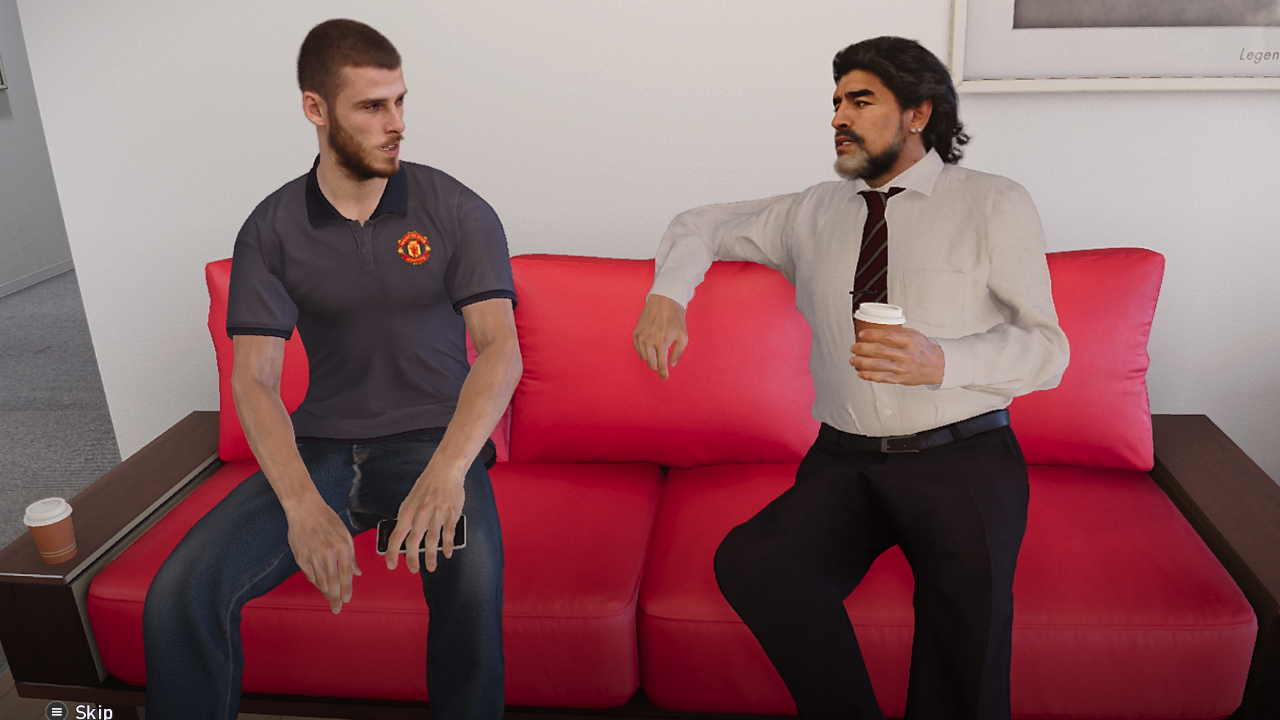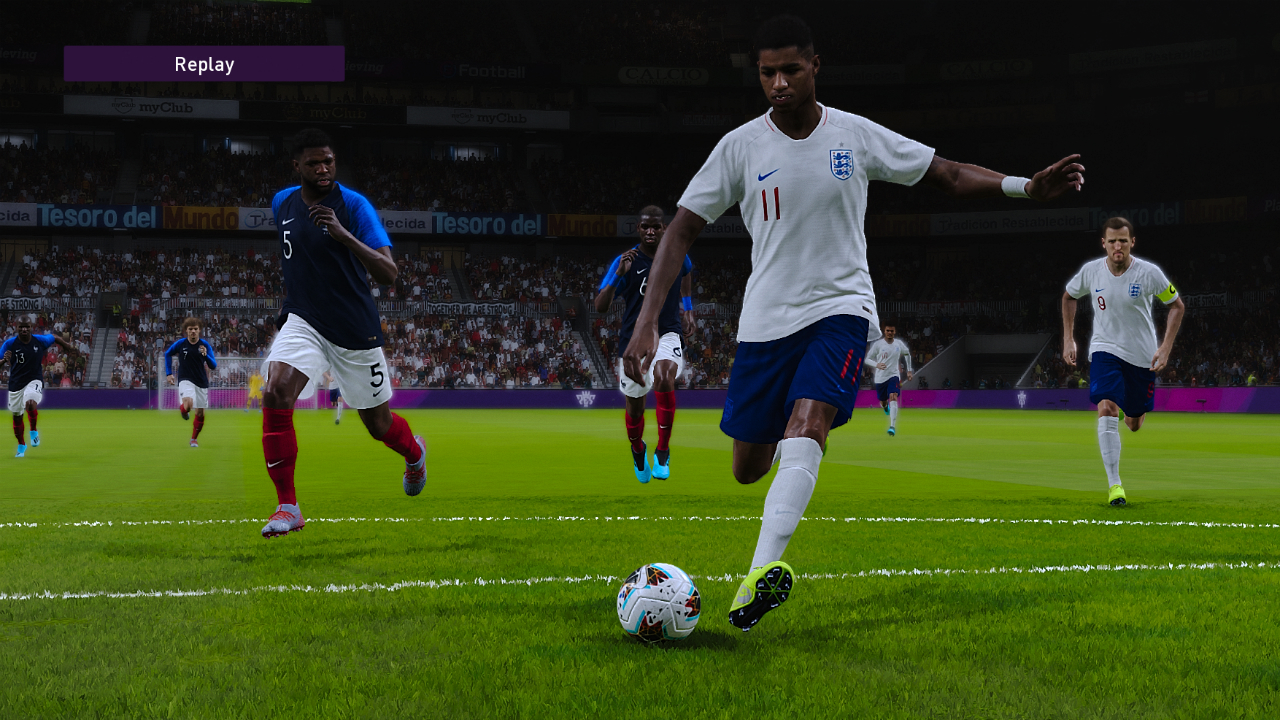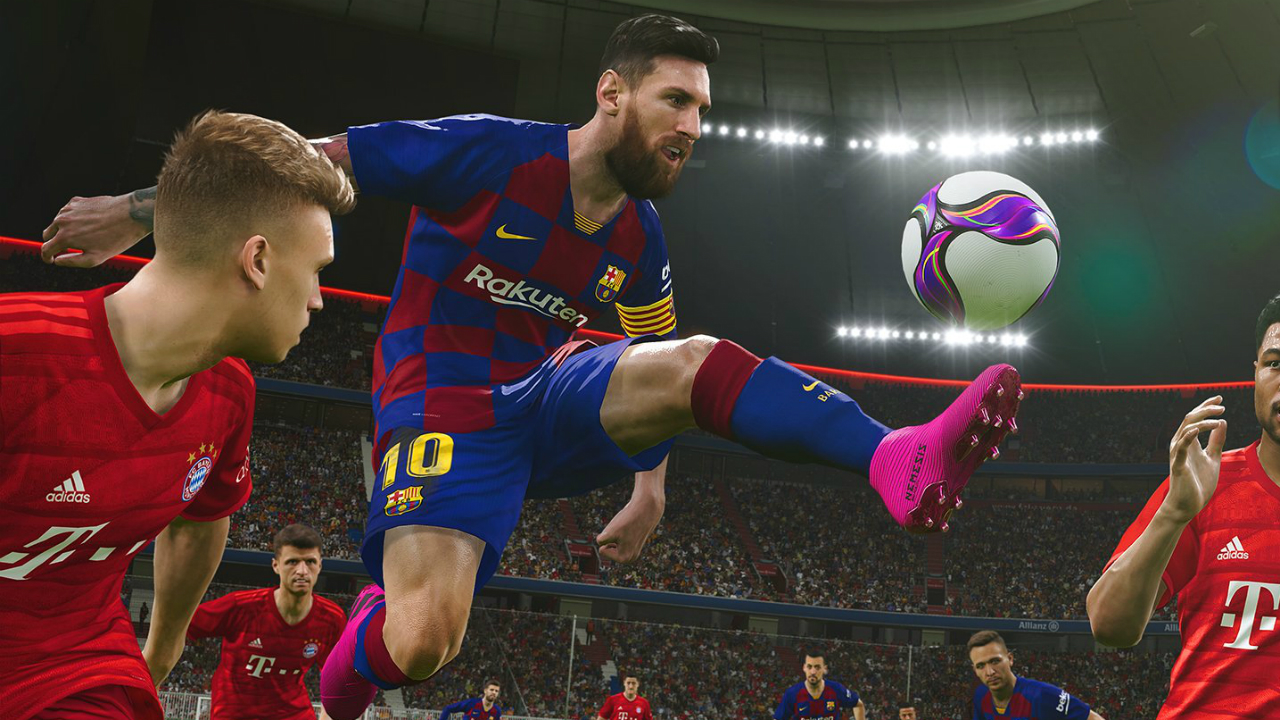GamesRadar+ Verdict
A few outdated features aside, eFootball PES 2020 marks an exciting new era for the long-running series.
Pros
- +
Plays a more authentic style of football than ever
- +
The new default camera provides a superb, TV-like perspective
- +
Master League has finally received some attention
Cons
- -
The repetitive commentary is far past its sell-by-date
- -
No major changes to Become a Legend or myClub
Why you can trust GamesRadar+
This is a colossal year for PES. The brand has undergone a name change to satisfy its growing esports focus, while major new partnerships and forthcoming content surrounding UEFA Euro 2020 add up to a notable period of expansion for Konami’s long-treasured series. Even EA Sports’ FIFA series is feeling the effects, with PES now retaining exclusive rights to Serie A champions Juventus, amongst others.
But as is tradition, PES 2020 places its biggest focus on the football itself, implementing a host of new features and refinements on the pitch. The finished package adds up to a smartly improved and more engaging effort than its predecessor, albeit with a few trademark quirks that slightly hinder its title-winning potential.
Take a seat
The most immediate difference compared to PES 2019 is the new default camera angle. It’s called ‘Stadium’, and serves as one of the best additions in this year’s game, implementing an authentic, broadcast-like approach. It assists in bringing the series’ intricately detailed stadiums to life, including new locations such as Manchester United’s Old Trafford and Bayern Munich’s Allianz Arena, and also works to enhance gameplay by injecting an added sense of realism.
And it’s gameplay which has always been paramount to Pro Evo, often to the chagrin of FIFA die-hards. There are crucial improvements to note this year. A new Finesse Dribble system provides improved ways to conquer one-on-one situations with subtle right-stick skill moves, and excels because of its low-key approach. It allows the likes of Philippe Coutinho and Juan Cuadrado to prove dominant, using quick feet to pull off ballet-toed manoeuvres.
You can now get more whip on your crosses, too, with headed attempts feeling more powerful, while an array of new defensive animations lead to far more crucial blocks and tense goalmouth scrambles than ever before. This makes top teams even harder to break down, especially on higher difficulty levels, where you encounter star defenders constantly putting their bodies on the line to prevent goalscoring opportunities.
However, the subtlest change has the greatest effect: a gameplay element called ‘miss-kicks’, which places a greater emphasis on player errors. It works to eliminate the occasional ping-pong nature of PES 2019 by reducing passing (and shooting) accuracy in appropriate situations, such as when facing away from the person you’re passing to. As a result, you’re forced to consider your actions more carefully before the ball leaves your feet, helping to curate a more authentic tactical mindset.
Managerial makeover
In terms of game modes, the biggest changes arrive in Master League - Pro Evo’s long-running offline career mode. This time around, the focus is on new cutscenes, some of which are interactive, helping to craft a more personalised story than in years past. The board might question you about objectives, for example, with multiple responses available, and you also come across detailed scenes surrounding press conferences, new signings, team talks, and much more.
It’s clear love and attention has gone into these segments, and they do a good job of progressing your personal narrative. That said, they don’t have much lasting impact on the team itself, only occasionally affecting things like player form, which feels like a missed opportunity. Still, they at least result in the freshest and therefore most enjoyable Master League in years, with upgrades also applied to the transfer system and mode customisation. However, the lack of a realistic regeneration system continues to disappoint, with retired players still being reincarnated as younger versions of themselves. The sooner this is remedied, the better.

Elsewhere, there aren’t too many new features, although plenty of returning favourites. The popular Become a Legend player career mode benefits from Master League’s intuitive new menu layout, but otherwise remains overly similar to last year’s effort. The same can be said of the Ultimate Team style myClub mode, which surprisingly takes a backseat, retaining much of the same content and presentation as last year.
The one exception is the addition of Matchday - a time-limited online tournament in which you pick sides and play to earn points for your chosen team. This is a reasonably fun mode, dishing out plenty of myClub rewards along the way, but it's too restrictive at present. At launch, you can only play it within a four-hour window, so if you’re not around at those times, you’ve no choice but to miss out.
Liquid football
The tagline for PES 2020 is “Playing is Believing”, and in many aspects, this rings true. Visually, it’s one of the most impressive sports games on the market, sporting an ever-improved set of realistic player models, as well as upgraded lighting and stadium enhancements. Pre-match segments fizz with big-game atmosphere, even when laced with Peter Drury and Jim Begin’s outdated commentary, which feels like it’s barely changed over the past twelve months.
As usual, the game does its best talking on the pitch. This year’s version adopts a slightly slower pace compared to PES 2019, and benefits as a result, encouraging more thoughtful build-up play and intelligent passing moves. There’s a greater sense of balance in general, with the engine rewarding you for prioritising patience and clever thinking, as opposed to exploiting any particular style of play.
PES 2020 also does an exemplary job of highlighting individual player traits. There’s a distinctly unique feel to all the top players, and adapting your tactics around them is the key to success. The likes of Mario Mandzukic are excellent at playing a long ball style, winning headers and holding up play, while someone like Sergio Aguero feels positively lethal with the ball at his feet. We saw this sort of thing in PES 2019, but it’s far more pronounced this time around.

Notable improvements bolster the AI, too. Playing against the CPU is far less repetitive and tiresome, with teams mixing up their strategies and styles of play. The likes of Barcelona attack with quick passing and creative flair, while lesser-rated sides are more prone to miss-kicks, and often look to waste time when taking an unlikely lead. The biggest downside to the AI is its off-the-ball intelligence, which still suffers from an occasional lack of responsiveness. There are times when player switching goes awry, or a player watches the ball float past them needlessly, and while these instances are rare, they’re often an annoyance.
For the most part, eFootball PES 2020 offers up a faithful replication of the beautiful game. It’s easily the most realistic PES to date, with various visual tweaks and gameplay enhancements proving key additions. It’s also a more immersive game than last year, particularly in terms of the new TV-style camera and growing number of major licenses, boosting its sense of legitimacy both on and off the pitch.
The lack of inventiveness applied to some modes - such as the ever-popular myClub - is a shame, and even Master League isn’t yet the finished package. But when the quality of the football is this good, it’s easy to forgive a few own goals.
Reviewed on Xbox One.
More info
| Genre | Sports |
Fraser Gilbert is a former freelance writer for Future Plc publications like GamesRadar+, PC Gamer, GamesMaster, FourFourTwo, Official PlayStation Magazine, Retro Gamer, Official Xbox Magazine, and so many more. Having spent years on the freelance beat, writing for a variety of books, magazines, and websites throughout the video game industry, Frazer is now stationed as the news editor over at Pure Xbox.



